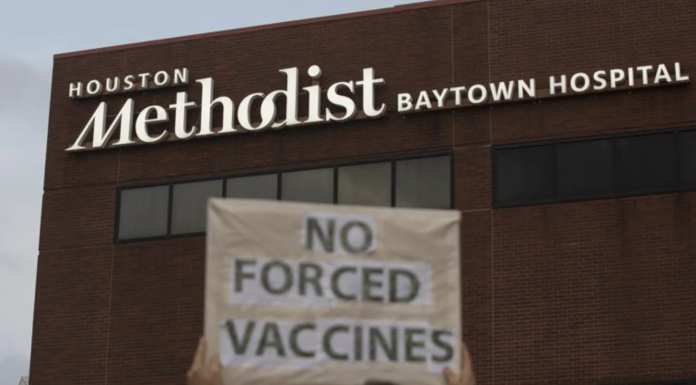What can employers do if workers avoid COVID-19 vaccines?
They can require vaccination and fire employees who don’t comply, or take other actions such as withholding company perks or charging extra for health insurance.
Businesses for months have been encouraging workers to get vaccinated, in some cases offering incentives like time off or gift cards. But more are taking a harder stance and requiring vaccinations for any remaining holdouts, a push that has gained momentum since Pfizer’s vaccine recently received full approval from the U.S. Food and Drug Administration.
Wade Symons, a partner with Mercer, a benefits consultant, said:
Employers “feel like they’ve sort of hit that point where the unvaccinated are not going to do it unless there’s something significant making them do it.”
“It’s legal for businesses to require the shots, and they could fire employees who don’t comply.”
It’s legal for businesses to require the shots, and they could fire employees who don’t comply. In other cases, workers might be required to wear masks or get regular tests for the virus. Some companies also are considering making the unvaccinated pay more for their health insurance.
At Delta Air Lines, unvaccinated employees on the company health plan will be charged $200 a month to help cover costs for possible COVID-19 hospital stays.
Symons said other employers will more likely add smaller charges of $20 or $25 per paycheck that might be refunded once the employee is vaccinated.
Employers might also restrict the use of office space, company gyms or business travel only for the vaccinated. In Las Vegas, MGM Resorts International has said unvaccinated employees will not be paid for time off to quarantine if they test positive for the virus.
Vaccine requirements will mainly come from businesses that need workers on a job site, Symons said.
Employers have to offer exemptions or accommodations from vaccine requirements for some who don’t get the shots for medical or religious reasons.
Walt Disney World and Ohio State University are among the large employers that said they’ll make vaccination mandatory since Pfizer’s shot was given the FDA’s full approval. Defense Secretary Lloyd Austin also has said that military troops must immediately begin to get the vaccine.
Some states like Montana have either banned employers from requiring vaccines or limited when they can issue such a mandate.
________
The AP is answering your questions about the coronavirus …
Do I need to get tested for COVID-19 if I’m vaccinated?
Yes, if you’ve been around someone who has COVID-19.
The latest guidance from the U.S. Centers for Disease Control and Prevention says people who are fully vaccinated should get tested three to five days after a potential exposure, even if they don’t have symptoms.
That change comes two months after the agency eased its initial testing guidance. In May, the CDC said vaccinated people face very little risk of serious illness and don’t need to be tested in most cases, even if exposed to someone who was sick. The thinking was that vaccinated people also weren’t likely to spread it to others.
But the agency says it’s reversing that guidance because of the more contagious delta variant, which now accounts for most COVID-19 infections.
The COVID-19 vaccines are still very good at protecting people from getting seriously ill, but the CDC says new data shows vaccinated people infected with the delta variant could spread it to others.
Doctors, nurses and other health care workers should consult with their employers, some of whom may require routine testing for their staff. People working in prisons and homeless shelters are also generally subject to stepped-up testing requirements.
U.S. citizens returning from abroad still have to present a negative COVID-19 test before boarding their flights home, regardless of their vaccination status. Anyone who tests positive for COVID-19 should still isolate for 10 days, the CDC says.



